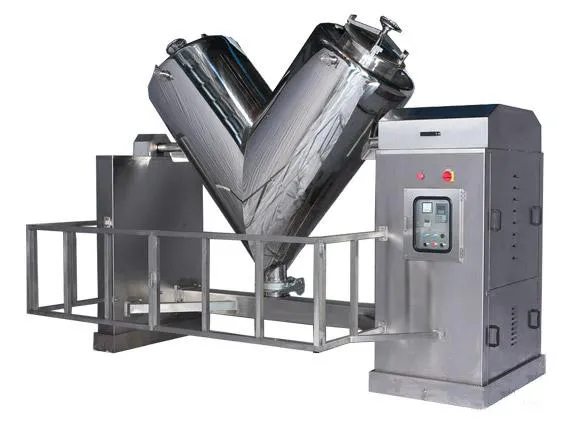Conical mixers are a type of industrial mixing conical screw mixers used in various industries, including food, pharmaceutical, and chemical processing. They are designed to efficiently mix and blend materials, and their performance has a direct impact on the quality of the final product. In this article, we will explore the impact of conical mixer performance on product quality, highlighting the key factors that affect product quality and the benefits of optimizing conical mixer performance.
Key Factors Affecting Product Quality
Several key factors affect product quality in conical mixers, including mixing efficiency, uniformity, and consistency. Mixing efficiency refers to the ability of the mixer to combine ingredients in a uniform manner, while uniformity refers to the consistency of the final product. Consistency is critical in many applications, as it ensures that the final product meets the required specifications and standards. Other factors that affect product quality include the type and viscosity of the materials being mixed, the mixer’s design and operating conditions, and the level of shear and stress applied to the materials.

Impact of Mixing Efficiency on Product Quality
Mixing efficiency has a direct impact on product quality, as it determines the uniformity and consistency of the final product. Inefficient mixing can result in a non-uniform product, which can lead to reduced product quality and increased waste. In contrast, efficient mixing ensures that all ingredients are fully incorporated and the final product is consistent and of high quality. Conical mixers are designed to provide efficient mixing, with features such as a conical shape and a rotating agitator or impeller that facilitate uniform mixing.
Impact of Uniformity on Product Quality
Uniformity is critical in many applications, as it ensures that the final product meets the required specifications and standards. Non-uniform products can result in reduced product quality, increased waste, and decreased customer satisfaction. Conical mixers are designed to provide uniform mixing, with features such as a conical shape and a rotating agitator or impeller that facilitate uniform mixing. Additionally, conical mixers can be equipped with features such as heating and cooling systems, which can help to maintain a consistent temperature and ensure uniform mixing.
Benefits of Optimizing Conical Mixer Performance
Optimizing conical mixer performance can have numerous benefits, including improved product quality, increased efficiency, and reduced waste. By optimizing the mixer’s design and operating conditions, manufacturers can ensure that their products meet the required specifications and standards. Additionally, optimizing conical mixer performance can help to reduce energy consumption and maintenance costs, as well as improve overall productivity.
Case Studies and Applications
Conical mixers have been successfully used in various applications where product quality is critical. For example, in the pharmaceutical industry, conical mixers are used to mix and blend active ingredients and excipients. In the food industry, conical mixers are used to mix and blend ingredients for products such as sauces, dressings, and baked goods. In the chemical industry, conical mixers are used to mix and blend materials for products such as adhesives and coatings.

Best Practices for Optimizing Conical Mixer Performance
To optimize conical mixer performance and ensure high-quality products, manufacturers should follow best practices such as regular maintenance, proper mixer design, and optimized operating conditions. Regular maintenance is critical to ensure that the mixer is operating at peak performance, while proper mixer design and optimized operating conditions can help to ensure efficient and uniform mixing. Additionally, manufacturers should consider factors such as the type and viscosity of the materials being mixed, as well as the level of shear and stress applied to the materials.
Conclusion
Conical mixer performance has a direct impact on product quality, and optimizing mixer performance can have numerous benefits, including improved product quality, increased efficiency, and reduced waste. By understanding the key factors that affect product quality and following best practices for optimizing conical mixer performance, manufacturers can ensure that their products meet the required specifications and standards. Whether you’re in the pharmaceutical, food, or chemical industry, conical mixers are a valuable tool for achieving high-quality products.